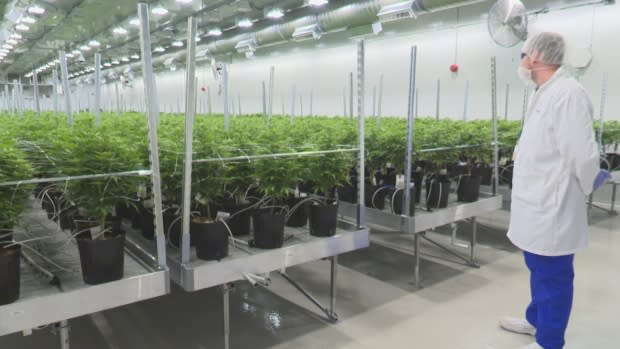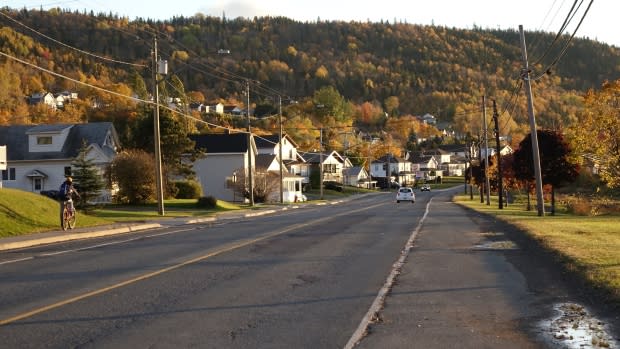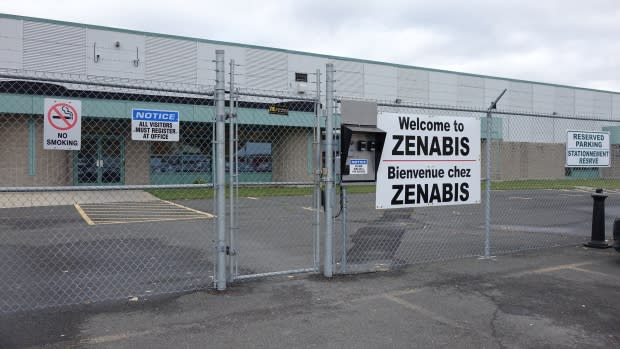New Brunswick hopes cannabis can help drive rural economic recovery
There is still much uncertainty about how much money provinces actually stand to make from legal cannabis, but in parts of rural New Brunswick, legalization has already helped to revitalize the economy.
In Atholville, a village with a population of just over 3,000, the arrival of cannabis giant Zenabis has given the struggling community a new lease on life.
Atholville was a typical northern New Brunswick village. Bleak job prospects led to a declining and aging population, as young people moved elsewhere in the province, or out west in search of better opportunities.
The area saw one of the sharpest population declines in the country between the last two censuses — close to 10 per cent.
That is until Zenabis, one of the largest cannabis producers in Canada, bought a facility in the village in 2014.
An affordable space had been left vacant by an old textile factory that shut down.
The new growing facility brought young people like Montana Alexander Metallic back to their hometown.

"We all left for school," said Metallic.
"And then we all came back for work. Very rarely you hear that — coming from around here. Usually you go out to work, and then you're off. You come home for the holidays."
The recent university graduate with a double major in chemistry and mathematics was hired as a quality assurance associate for Zenabis in January.
"I wanted to be able to do something with my degree," he said.
Locals fought to get the plant
Montana isn't the only one who came back to the region to work in the industry.
Zenabis went on a hiring spree after receiving its operating licence from Health Canada in August 2017.
In July, there were 60 people working at the plant. In less than three months, that number doubled to 120.
The company plans to eventually grow to 500 employees. It is currently only using a third of its available space.

It's a welcome reprieve in a region where the unemployment rate has consistently been the highest in the province.
Last month, it sat at 8.5 per cent. That still might seem high, but in a place where unemployment usually reaches the double digits, the new jobs have brought a sense of relief.
It didn't all happen overnight. Getting Zenabis to buy the building was one thing, but having the company receive its operating licence was another. The village fought every step of the way.
"We were losing a lot of industries — sawmills, paper mills, chemical mill. We kind of saw the urgency," said Michel Cormier, a local garage owner and who joined the lobbying effort to bring Zenabis to Atholville.
New Brunswick wants to be a leader
If cannabis changed the face of the small community, it's no coincidence.
New Brunswick was one of the first provinces to get on board when the Liberal government announced its plans to legalize marijuana.
The province — whose debt situation was likened to the Titanic — even listed cannabis as part of its economic growth plan.
"We see here in New Brunswick a lot of cost-competitive advantages as to why it could be done right here," said Premier Brian Gallant.

"We have a great workforce, we have real estate that is cheaper than many other jurisdictions across the country. We have a willingness to figure it out, and do whatever we can to bring some of the investments and jobs to our province."
The small province is home to two large cannabis growing facilities and a third is under construction.
Together they will produce 15,500 kilograms of marijuana per year to be sold in government-operated stores in New Brunswick.
But that will only be a small fraction of their production.

Facilities in New Brunswick will supply other provinces — Nova Scotia, Newfoundland, Prince Edward Island, Ontario, Manitoba, Alberta, British Columbia and the Yukon, and ship some of their medicinal marijuana internationally.
Zebanis weed will be sold in Europe, and marijuana from Moncton-based producer Organigram will travel all the way to Australia.
Organigram said as much as 86 per cent of its weed is destined for exports.
The province also announced two research chairs in marijuana, one at the University of New Brunswick and one at Saint Thomas University, hoping to solidify its position as an industry player.

"The main goal is to protect our youth from cannabis and ending the black market. But on the side of that, there is no doubt that we see an opportunity," said Gallant.
The province has allowed more stores per capita than its neighbours. With a population of about 760,000, New Brunswick has 20 provincially-run cannabis stores.
In comparison, neighbouring Quebec has 20 stores for a population of 8.4 million.
Six-hundred cannabis jobs have been created so far in New Brunswick, and another 3,000 are expected over the next five years, as production facilities plan to expand. Local officials believe filling those jobs could be a challenge.
The province expects to earn $45 million from cannabis in the first year after legalization, although much of that money will initially be used to cover start-up expenses related to opening new cannabis stores and employee training.

